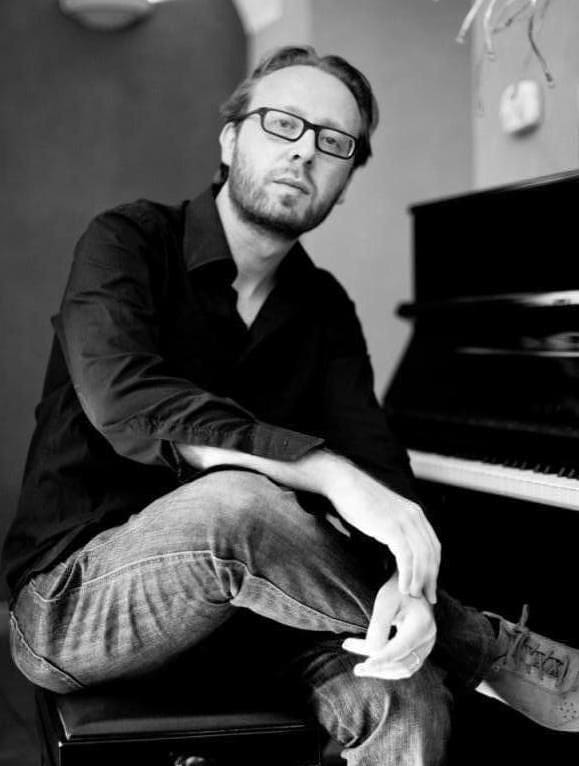
Courtesy of Michele Maccarrone
With the increasing role of technology in today’s music world, computer-generated music and compressed audio files can take precedence over sitting down at a concert to enjoy a live performance. In one of Italian classical pianist Roberto Prosseda’s educational projects, he performs side-by-side concerts with a robot pianist — named Teo Tronico — in order to stress the differences between lifeless perfection and human-to-human musical expression.
On Feb. 13 in Morse Recital Hall, Prosseda will perform works of Mozart, Mendelssohn and Schubert. The concert will continue the Horowitz Piano Series, a concert series that highlights Yale School of Music faculty members and brings well-known soloists to an intimate recital setting on campus. While he will not bring Teo Tronico to New Haven, Prosseda seeks to share his music in a unique and personal way.
“We risk losing the sense of a genuine musical expression and for this reason attending classical music concerts and playing an acoustic instrument is so important nowadays,” said Prosseda. “Recitals are an opportunity for me to share with the audience the intensity, depth and magic of some of my favorite piano masterworks.”
For Wednesday’s program, Prosseda selected four works by early 19th century German composer Felix Mendelssohn: “Venetianisches Gondellied,” Fantasie, Op. 28, four selections from “Lieder Ohne Worte (Songs Without Words)” and Rondo capriccioso, Op. 14.
In addition to having recorded 10 CDs of Mendelssohn’s music, Prosseda is known for his performances and recordings of newly discovered works of Mendelssohn, which he described as “hidden musical treasures.”
“Prosseda’s passion for presenting lesser-known or newly-discovered Mendelssohn … shows that he is both a musician and an appreciator of music,” said pianist David Hou ’22.
In addition to Mendelssohn, the program also features Mozart’s Fantasia in C minor and Piano Sonata No. 14 in C minor and Franz Schubert’s Four Impromptus.
Prosseda noted that in selecting his program for Wednesday’s concert, he focused on finding music that resonates with people on a personal level. For example, in the Fantasia, the audience “gets a lightness of touch and pastel piano colors that make[s] this music very individual and innovative,” he said.
Prosseda said that the entirety of his repertoire was composed between 1785 and 1835. He also pointed out that the pieces all share in their referencing the work of another composer: the influential Ludwig van Beethoven.
“[Prosseda] is absolutely amazing, and the repertoire he’s playing is seasoned very well,” said pianist Gabriele Strata MUS ‘19, who studied with Prosseda for four years in Italy prior to his studies at the School of Music. “He really moves [an audience].”
Prosseda said that he hopes that audience members will be able to “forget for a while their personal business” during his recital, allowing themselves to “immerse in the music.”
He added that he believes that the audience must also participate in order to achieve this sense of immersion in the music.
“A concert is made both from the performer and the audience. The audience … has an active part in the artistic result of the concert,” he said.
Prosseda noted that he finds that when he performs, his “interpretations are quite different and much more intense and unpredictable” than when he plays for just himself.
Due to his use of the piano-playing robot, Prosseda is interested in artificial intelligence and computer technology and their ability to replicate human emotions. Prosseda believes that the search for perfection through technology is a dangerous pursuit for human beings who are inherently imperfect.
“Our human ‘imperfections’ are a treasure,” said Prosseda. “Our identity is related to our cultural background and on our awareness of moods, emotions, and our ability to recognize them in other people and to express and share them with other human beings. And for these matters, music is the best way to enrich our life.”
In addition to his performance career and interest in music technology, Prosseda also serves as a radio host and educator and is a scholar of Italian literature.
Phoebe Liu | phoebe.liu@yale.edu







